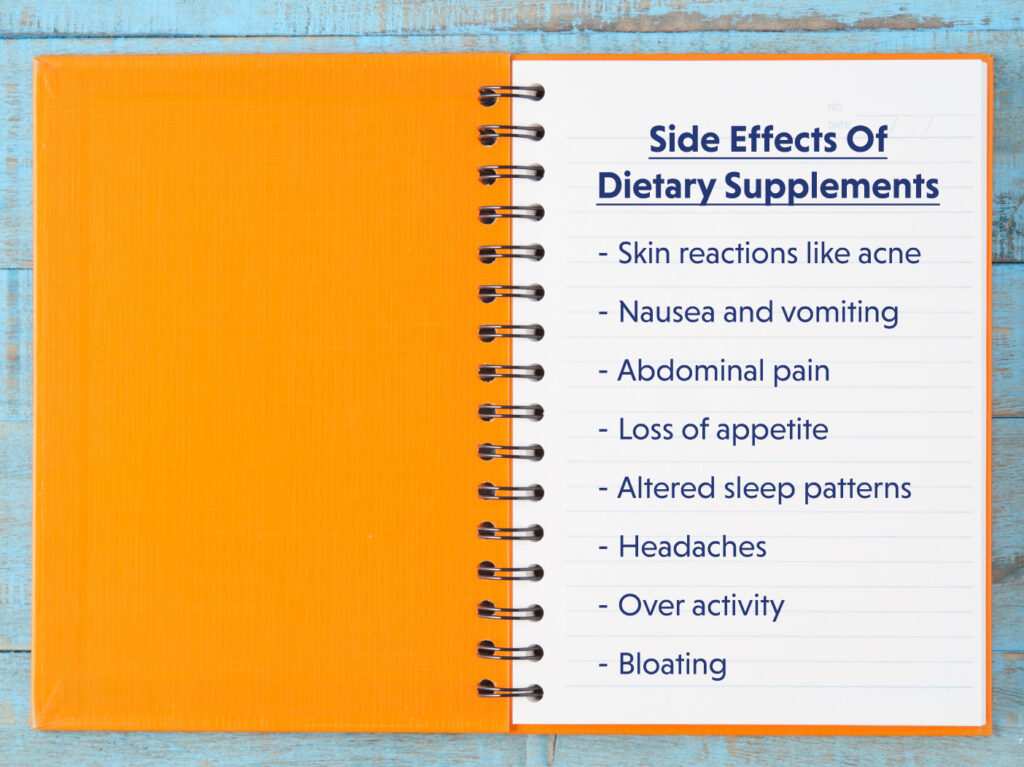Dietary Supplements And Their Role In Digestive Health
Our digestive system is incredibly complex and delicate. One must keep a regular tract of his or her digestive health to stay energetic and mentally fit. Our gastrointestinal tract (GIT) is not only responsible for controlling digestive issues, but it also impacts the rest of the body. Other processes which our GIT influences are the immune system, mental health, skin conditions, autoimmunity, and endocrine disorders.
Digestive health benefits the composition and functioning of one’s gut flora or gut microbiome. The trillions of bacteria in our gut make up the gut microbiome. Therefore, one must be mindful of the factors influencing one’s gut microbiome. Amongst all the factors, one’s eating habits play a significant role in maintaining the gut microbiome composition.
A balanced diet is what an individual must follow to fulfill the nutrient requirement of the body. However, many people do not eat nutritious foods, so they need to take dietary supplements. When we consume the supplements along with our meals, they support the process of digestion by better absorption of nutrients. Supplements are also essential in preventing pain or discomfort and further problems like diarrhea and constipation.
You can add nutrients to your diet in the form of supplements. This will lower the risk of many health problems, such as osteoporosis and arthritis. Now let’s delve into some common digestive supplements and vitamins and see how they benefit our digestive health.
- Digestive Supplements:
a) Probiotics
Probiotics are living microorganisms that resemble the good bacteria in our gut. Thus, probiotic food is beneficial for your digestive health and reduces the symptoms related to GIT problems. Probiotics help relieve diarrhea and even some symptoms of irritable bowel syndrome (IBS). We can intake probiotics by adding them to malted milk or yogurt.
b) Digestive Enzymes
Some digestive enzymes naturally present in our gut are amylase, maltase, lactase, lipase, etc. These enzymes help to turn the complex food we eat into digestible nutrients like fatty acids, cholesterol, amino acids, and simple sugars. Therefore, digestive enzymes must be taken before your meal.
c) Fiber Supplements (Prebiotics)
Prebiotics are the food to the probiotics. Certain foods, like chia seeds and flax seeds, are rich in prebiotic fibers. As per recent studies, an adult requires 30-40 gms of fiber daily. Some common prebiotic supplements used are Ritual Synbiotic + Transparent Labs Prebiotic Greens etc.
d) Collagen
Collagen is present in our body in the form of gelatin which promotes the production of gastric juices required for digestion. Collagen also contains amino acids, i.e., glycine and proline, which further restore the integrity of the intestinal wall. As we age, natural collagen production declines, accelerating the need to supplement your diet with collagen.
e) Peppermint Oil
Peppermint oil supplements are available in the form of capsules that remain intact when they pass through to the small and large intestines. This is where the oil is released then. This oil works effectively to reduce the pain and bloating caused mainly due to IBS.
f) Chamomile

Chamomile can be used in the form of tea, oil, or capsules. It is also said to treat anxiety and insomnia, along with digestive problems like upset stomach, colic, nausea, etc.
g) Ginger
Besides using ginger directly in your food, it is also used in medicines to treat stomach aches and relieve nausea and vomiting during pregnancy. Ginger supplements are available in the form of powder, capsule tablets, syrups, or tea.
h) Licorice Root
This type of root effectively treats gut issues like digestive problems and stomach ulcers. They also restore and maintain intestinal lining, but if taken in high doses can lead to some health issues.
i) HCL(Hydrochloric Acid)
HCl is naturally produced in our gut to break down protein and other nutrients. Hence, mal absorption of nutrients takes place along with bloating symptoms when HCl deficiency occurs. Betaine hydrochloride is used to treat low stomach acid in some people.
2. Vitamins Essential for Digestive Health
a) Vitamin D
Vitamin D is the most important supplement, as almost 1 billion people around the world are vitamin D deficient. Along with maintaining other body functions, it proves to be very beneficial to our GI health also. This vitamin helps absorb the calcium we intake, ease the symptoms of IBS, and prevents many kinds of cancer, including colon cancer. An adult requires 1000IU of vitamin D2 and D3 daily.
We can naturally get vitamin D if we spend adequate time in the sun. If we don’t, we can also get it in the form of oily fish, egg yolks, orange juice, or cow’s milk.
b) Vitamin B
There are eight categories of vitamin B nutrients present in our food. Some vitamin B-rich foods are meat, eggs, beans, leafy greens, whole grains, seafood, etc.
- Vitamin B2 – helps absorb proteins, fats, and carbohydrates and keeps the intestinal lining intact.
- Vitamin B3 – It helps in the breakdown of alcohol, fats, and carbohydrates. Therefore, lacking this vitamin will lead to pellagra, vomiting, and diarrhea.
- Vitamin B6 – It helps in the digestion of proteins we eat.
- Vitamin B12 – This vitamin helps in the production of blood cells and regulates the use of folic acid. Hence, its deficiency causes anemia.
- Biotin – It supports the digestive system in producing cholesterol and helps digest proteins, carbohydrates, and fatty acids.
c) Vitamin C
Vitamin C is also an antioxidant and aids digestion by supporting healthy teeth and gums. It also aids in the absorption of iron. Some vitamin C-rich food sources are:
- Citrus fruits
- Tomatoes
- Peppers
- Broccoli
- Berries
- Fortified cereals
Side Effects of Dietary Supplements

Dosage should not be overlooked when it comes to supplement use. Very few supplementsshould cause side effects if the dosage is maintained. A doctor’s consultation must be sought out when a supplement has to be added to your diet. Some side effects that the intake of supplements may cause include:
- Allergic reactions
- Skin reactions like acne
- Nausea and vomiting
- Abdominal pain
- Loss of appetite
- Altered sleep patterns
- Headaches
- Over activity
- Bloating
- Weight loss
CONCLUSION
The proper functioning of all your body processes is effectively driven by a balanced diet. In case of any deficiencies, consult a doctor to fulfill the inadequacies in your diet with the help of dietary supplements. The frequency and dosage of the supplement should not be altered without a doctor’s prescription.
Download the JOYSCORE APP to learn more about nutrition and staying healthy!



